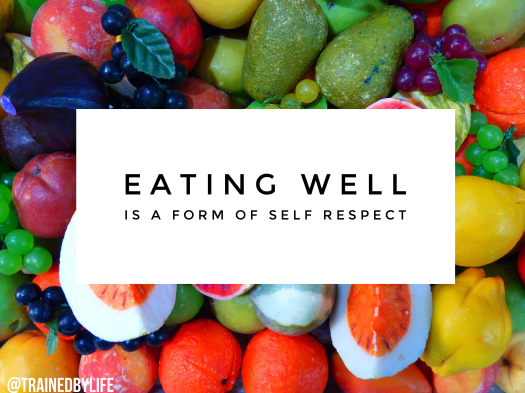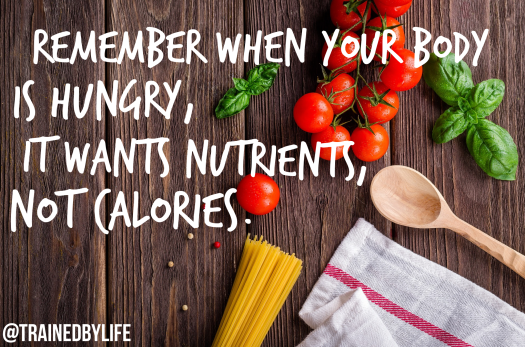Role of Nutrition + Exercise
I should probably come out and be crystal clear- I am not a doctor, dietician, nutritionist, personal trainer, or anything with a title…yet. See disclaimer here. What I am is a 25-year-old with a lot of life experience. I am intuitive and I love to research and learn about health related topics. I also like to experiment with my own body to find what feels good and what keeps me performing at my optimum level.
I am an eating disorder survivor who could never really reach my “body goals” in a healthy way because I didn’t have the proper knowledge or support. To be honest, it wasn’t until the last year or so where I actually felt like I had the proper knowledge to achieve the body goals that I HAD. [I currently don’t really have a goal]. I’ve been researching and experimenting like crazy since I was diagnosed with CIRS from toxic mold in 2016 and feel like I’ve established a pretty good base of knowledge to achieve any body goal I may have in the future. For now, I am just maintaining, enjoying my time in the gym, eating fun, healthy, nutritious foods, and living a really happy life.
I am sure you’ve heard of the old saying that weight loss is 80% diet and 20% exercise. It definitely holds a lot of truth and I’ve experienced it first hand. I didn’t really start working out until 2014, but a couple of years before that I made major changes to my diet and it’s probably not what you think. I stopped eating conventional foods and started eating organic, non-GMO, whole, REAL, nutritious foods. You know the foods that aren’t genetically modified and sprayed with poison? Did you know that the majority of “food” consumed by Americans is really just food-like substances? I wasn’t keeping track of my weight but I was definitely losing it (my clothes weren’t fitting) and all I did was change my diet with no exercise.
Now when you combine great nutrition with exercise and you have the formula to reach your body goals.

To be real blunt and honest, you probably won’t ever reach your fitness goals if your nutrition sucks. Depending on your nutrition, or lack there of, you might be wasting your time in the gym. That’s the simple, honest truth. The impact that nutrition plays on your body goals is much larger than that of exercise. I definitely don’t judge anybody in the gym, we’re all on our own journeys, but there is this part of me that wants to help people so bad when I’ve seen them the last 6 months crushing it in the gym with nothing to show for it. Wanna know why? Lack of proper nutrition.
Eating to Reach Body Goals
So how can you reach your body goals through nutrition? First, you need to know what your BMR (basic metabolic rate) is. Your BMR is basically the minimum amount of calories your body requires every day, even if you used very little energy. Alright, so let’s take a step back into math class.
BMR Formula (women):
BMR = (weight in kg x 9.99) + (height in cm x 6.25) – (age x 4.92) – 161
Example: (50 kg x 9.99) + (160 x 6.25) – (25 x 4.92) – 161 = 1215.5
Your BMR is NOT the minimum amount of calories your should eat in a day, it is simply a baseline if you were to do nothing on the daily.
Total Daily Energy Expenditure
Next, you will want to determine your TDEE (total daily energy expenditure). This is an approximate amount of the calories burned in a given day based on your activity level. You’ll take your BMR and multiply it by a number which represents your activity level.
Sedentary – You get very little to no exercise. This may be the case if you have a desk job.
Formula: TDEE = BMR x 1.2
Lightly active – A little exercise (working out 1-3 days per week)
Formula: TDEE = BMR x 1.375
Moderately active – Moderate exercise (working out 3-5 days per week)
Formula: TDEE = BMR x 1.55
Highly active – Heavy exercise (working out 6-7 days per week)
Formula: TDEE = BMR x 1.725
Very active – Very heavy exercise/physically demanding job (manual labor)/ exercise 2x per day
Formula: TDEE = BMR x 1.9
I.e. TDEE = 1215.5 x 1.725 = 2097
So now that you have determined your BMR and TDEE, you are probably wondering, “what next?”
You actually already have the formula and tools for weight loss if you stopped right here. It is essentially calories in – calories out = calorie deficit. You will lose weight as long as you are burning more calories than consuming, but if you want to take your nutrition to the next level, and STOP counting calories, follow along.
Counting Macros
Macronutrients are in all foods and consist of proteins, carbs, and fats. Each macronutrient has a calorie value.
- 1g Protein = 4 calories
- 1g Carbohydrate = 4 calories
- 1g fat = 9 calories
Calculate Protein
Depending on your goals, the amount of protein you will need can range anywhere from .08g – 1g per pound of body weight.
Ie. 1g x 110 = 110g protein
Now we need to calculate how many calories from protein.
110g x 4 calories (per 1g protein) = 440 calories from protein
So for this particular woman, she needs 110g of protein.
Calculate Fat
Now we will calculate how many grams of fat you need based on your body weight in pounds using .35 – .45 as a baseline.
110 x .35 = 38.5
Now we can calculate the total calories from fat.
38.5 x 9 calories (per 1g fat) = 346.5
Calculate Carbs
To calculate the total macronutrients for carbs we will subtract TDEE – protein calories – fat calories. Then you will divide total calories by 4.
Formula: TDEE – protein calories – fat calories/4 = carbs
2097 – 440 – 346.5 = 1310.5/4 = 328
Eating for Maintenance
110g protein
38.5g fat
328g carbs
Keep in mind these formulas and figures are a rough estimate. You may or may not experience a fluctuation in your weight the first two weeks as your body adjusts to the changes. After two weeks, monitor your weight and if needed, make any slight adjustments based on your goals.
You may find that you function better with fewer carbs and more fat. I use these numbers as a baseline, and I can tell you right now that I get a lot more fat and a lot fewer carbs than what I calculate, but I’ve also played around with my diet for a while and know how I function best.
I currently do not keep track of my calories or macronutrients. I have been eating intuitively for the last two months which has been working really well for me. However, I did track for about 4-5 months before that which allowed me to gain a better understanding of what my body needs to perform at its best. I also practice intermittent fasting which I believe can be a really great tool to incorporate to achieve your fitness goals. More on that in a future post.

XOXO
Samantha

